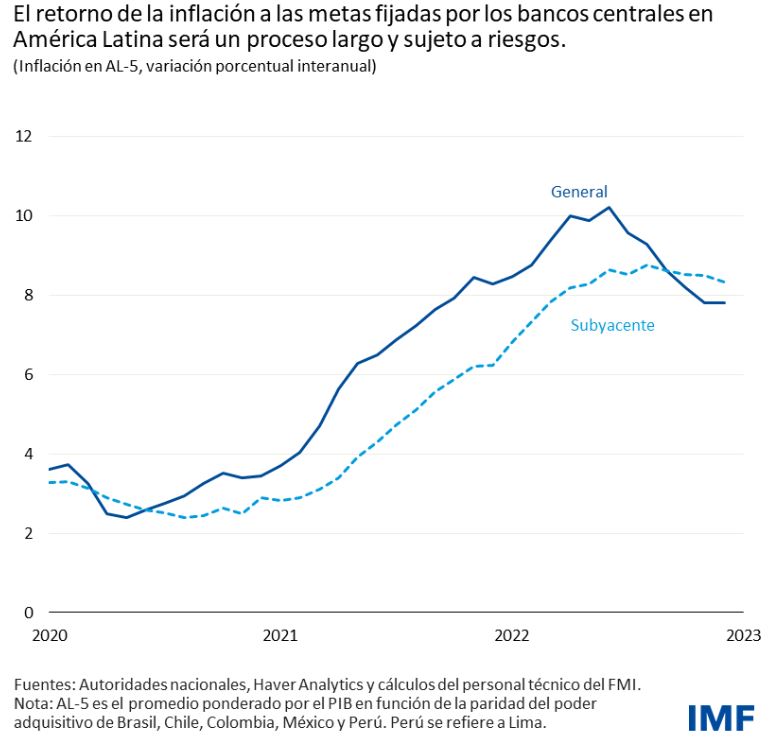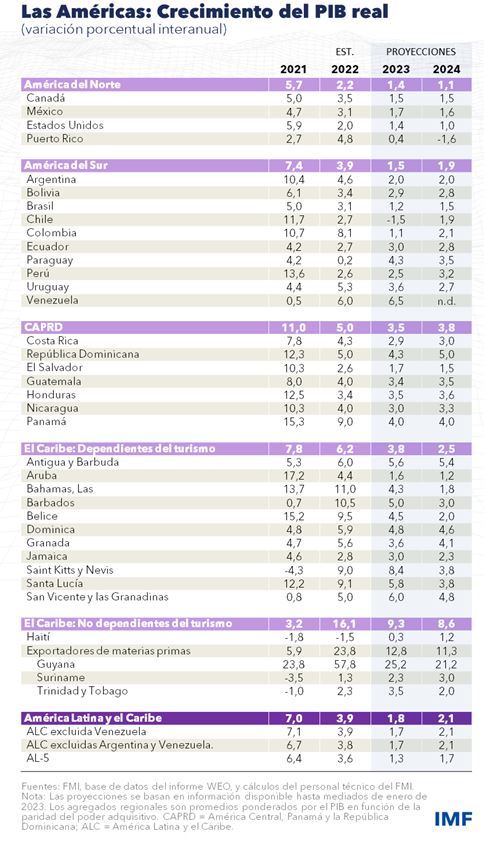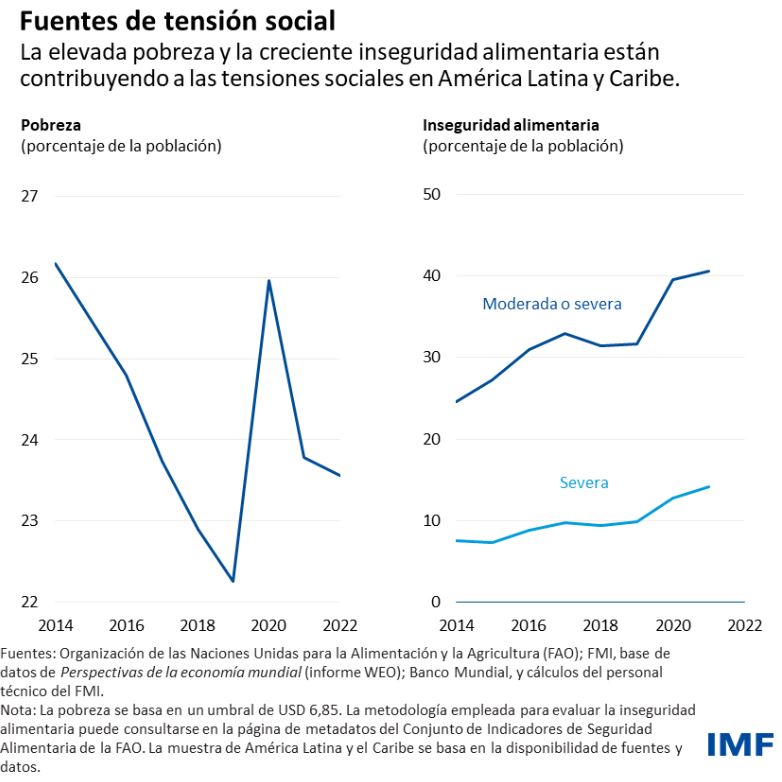Latin America is currently facing slower economic growth and high inflation (Economic Outlook), which has resulted in social tensions throughout the region. To achieve macroeconomic stability and promote growth, carefully formulated policies that address the root causes of discontent are necessary.
Over the past year, Latin American economies have shown resilience in the face of global events such as Russia's invasion of Ukraine and rising global interest rates. In 2022, the region's economy grew by around 4%, employment rebounded significantly, and the service sector recovered from the damages caused by the pandemic.

Perspectivas económicas América latina
Although inflationary pressures are easing in many countries due to the rapid and decisive actions taken by central banks and the decrease in global food and energy prices, underlying inflation (excluding food and energy) remains high, around 8% in countries such as Brazil, Mexico, and Chile (and slightly higher in Colombia, but lower in Peru). Despite encouraging news on growth and inflation, 2023 is likely to be a challenging year for the region, with projected growth of only 2%, higher interest rates, and lower commodity prices. Job creation and consumption of goods and services are slowing down, while consumer and business confidence is weakening. In addition, a slowdown in trading partners, particularly the United States and the Eurozone, is expected. Downside risks persist, such as possible financial conditions that are more restrictive than expected and the war in Ukraine.
On the other hand, returning to the inflation targets set by central banks will be a prolonged and risky process, such as an increase in wage pressures.
Socioeconomic prospects are complicated, as slowing growth, high inflation, and global uncertainty imply that many people in the region will experience a decline in their standard of living and increased anxiety about the future. Growing social unrest and declining confidence in public institutions have been a prominent trend in the region for some time, exacerbated during the pandemic. The poorest, especially those who work in in-person services, suffered the worst economic consequences. Despite public support, many could not fully protect themselves from the negative impacts of the pandemic, as reflected in the significant increase in poverty and food insecurity. The region's middle class also faces a more unstable economic situation, with many small businesses struggling during lockdowns and middle-income workers' wages eroded by subsequent price escalation.
To reverse these trends and the impact of the pandemic, restoring macroeconomic stability and stimulating growth through structural reforms is necessary. However, finding agreements to implement reasonable economic reforms in an environment of strong social tensions will be a difficult task. At the same time, the continued possibility of social unrest and political paralysis can undermine confidence and be a hindrance to activity.

Perspectivas económicas América latina
Web pages
https://akademiun.com | https://avacum.com | https://hbr.org



Leave A Comment